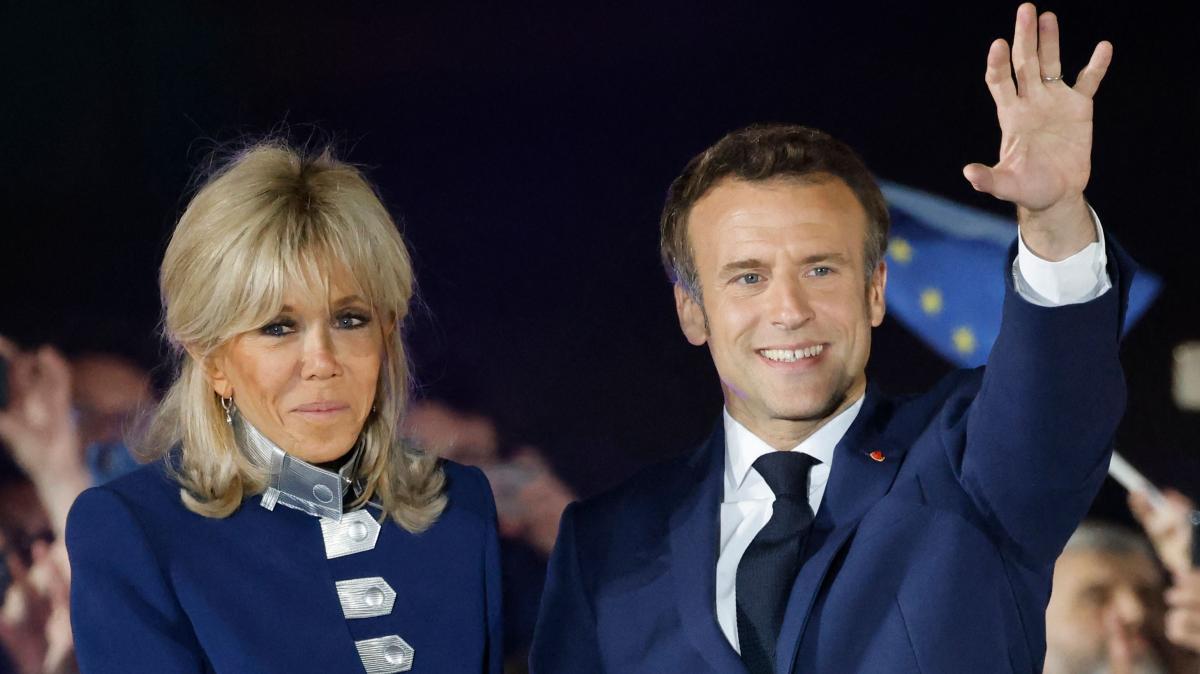
PARIS, April 25 (NNN-AGENCIES) — Emmanuel Macron won a resounding victory against Marine Le Pen in the presidential run-off, becoming the first French modern head of state to secure re-election while holding executive power.
Macron, 44, won a projected 58 per cent of the vote against Le Pen’s 42 per cent after an aggressive second-round campaign in which he cast the leader of the National Rally as a far-right threat to democracy and European security.
Le Pen’s score on her third run for the presidency was lower than expected after she landed in close second place in the April 10 first round.
In a sign of the right’s growing power, it was, however, eight points higher than in her duel with Macron in 2017. This marked the highest level ever achieved by the nationalist movement that was founded by her father, Jean-Marie Le Pen, in 1972 and which she inherited in 2011.
As Macron celebrated his victory before a jubilant crowd of thousands on the Champ de Mars in front of the Eiffel Tower, mainstream politicians and European leaders voiced relief at the rejection of a candidate who had promised authoritarian government by referendum at home, upheaval in Europe and alliance with Russia.
Boris Johnson, whose relationship with Macron is tense, quickly tweeted congratulations, adding: “France is one of our closest and most important allies.” Olaf Scholz, the German chancellor, congratulated the fiercely pro-EU president, adding: “Your constituents also sent a strong commitment to Europe today.”
Macron acknowledged his debt to voters, mainly from the left, who had heeded calls to back him in the run-off to block Le Pen’s election. “Many of our compatriots voted for me not out of support for my ideas but to block those of the far right,” he said. “I want to thank them and I know that I have a duty towards them in the years to come.”
Macron also acknowledged the fractured state of the nation after an election in which 60 per cent of voters backed anti-system radical right and left candidates in the first round. He promised to answer “the anger and disagreements that led many of our compatriots to vote for the far right”.
He added: “It will be my responsibility and that of those around me.” Macron promised to move ahead with his modernising reforms, many of which provoked protests, including the yellow-vest movement, in his first term.
“No one will be left by the wayside,” he said. “It will be up to us to work together to achieve this unity which will enable us to live happier lives in France.”
Le Pen, 53, ascribed her defeat to the way voters ganged up to block her and promised revenge in the parliamentary elections in mid-June that will be vital for determining whether Macron has full authority to govern. The election result was “a remarkable victory” for her, Le Pen claimed.
“The ideas which we represent are reaching the summit,” Le Pen said in a speech to several hundred supporters at the Bois de Boulogne outside Paris. “Millions of our countrymen have chosen the national camp and change. I cannot prevent myself from feeling a form of hope. This result constitutes the sign of the French people’s great distrust for French and European leaders, which they cannot ignore.”
She added: “Emmanuel Macron will do nothing to repair the fractures that divide our country and make our compatriots suffer. I fear that the five-year term that is about to begin will not break with the brutal methods of the previous one.” Le Pen appealed to all who reject Macron to “join me as the main opposition party of France”.
Macron’s election led to violent protests by leftist activists in Paris and other cities including Rennes, Toulouse, Lyons and Nantes. Demonstrators in central Paris threw bottles and stones at the police who responded by charging at them.
Macron’s was only the third re-election since the Fifth Republic was founded in 1958. It was the first for a ruling president because Jacques Chirac in 2002 and François Mitterrand in 1988 were “cohabiting” at the time with governments run by their opposition and Charles de Gaulle’s 1965 election to a second term was the first time the French public voted for the presidency.
The regional breakdown of the votes showed that Le Pen did well in the de-industrialised north and east of the country, her strongholds, which suffer higher unemployment than the prosperous west. In the Pas de Calais département, for example, she beat Macron by 56-44 per cent. While Le Pen took many rural and semi-rural areas, Macron defeated Le Pen by huge margins in Paris and other big cities, where he is strongly supported by the young professional classes as well as people over 65. — NNN-AGENCIES






